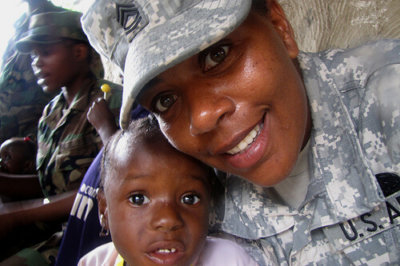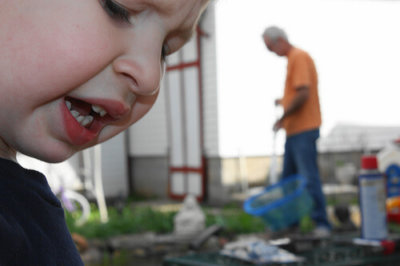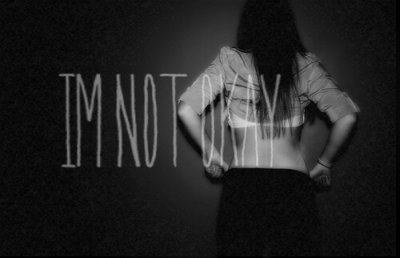What is Transgenerational Trauma?

By: US Army Africa
Andrea M. Darcy
Heard about ‘transgenerational trauma’, and wondering if it applies to what you are dealing with?
What is transgenerational trauma?
Transgenerational trauma is also referred to as ‘intergenerational trauma’, or shortened to ‘generational trauma’. It refers to how trauma passes through generations. A new field of research, only started in the 2000s, the idea is that trauma is passed on behaviourally but also potentially biologically, affecting the way our DNA behaves.
Which means that not only can someone experience trauma. They can then pass the symptoms and behaviours of trauma survival on to their children, who then might in turn pass these further along the family line, to the grandchildren and so on.
Collective trauma, when a group is traumatised for things like their ethnic, cultural, or religious identity, is also a form of transgenerational trauma. Let’s first look at how transgenerational trauma affects families, and then how it affects the collective.
What types of trauma can become ‘trans generational’?
A classic example of transgenerational trauma in a family would be childhood abuse that causes a cycle of abuse and anxiety in ongoing generations. Other types of trauma that could cause intergenerational trauma include things like:
- extreme poverty
- domestic abuse
- persecution or segregation
- a sudden or violent death of a family member
- a crime against a family
- a parent who fought in a war
- the torture of a family member.
But how is it possible to ‘inherit’ trauma?
Again, it is thought to transmit behaviourally and then through how our body responds to our DNA, called ‘epigenetics’.
So while nobody can experience exactly what a relative has lived through, what can be passed on are the symptoms of surviving trauma, and the ways we manage stress.

By: dadblunders
How does trauma affect parenting?
Trauma affects the way someone parents because it affects things like:
- the parent’s ability to offer a child proper attachment
- the activities a parent decides to do or not do with their child
- the stories a parent tells a child
- the perspective, personal values and core beliefs a parent teaches the child
- the behaviours a child witnesses and adult carry out.
Generational trauma examples
Let’s look at an example of a mother who was badly sexually abused and never sought support to deal with her trauma. She suffers with symptoms of hyper-vigilance, anxiety, low self-esteem, repressed anger, inconsistent moods, depression, damaged sense of self/lack of identity, paranoia. She also has ongoing health issues and often has colds/flu. (The above are all symptoms of complex PTSD).
She wants to love her child, but sometimes she is just so, so tired, and feels so unhappy (depression). And sometimes she is just miles away without meaning to be (dissociation). And so she is inconsistent with her child, sometimes loving and sometimes cold (attachment issues).
In truth, she often doesn’t know who she is, or if life has a point. But now she has a child, who is her reason for living and can make her happy (codependency/ controlling parenting). When her child is good she tells him what an angel he is, and when he isn’t an angel she locks herself in her room for a few hours.

By: Logan Prochaska
Sometimes she tells him stories about her life. How hard it was, how she learned you can’t trust anyone or anything. How bad her luck was, but that is just the way life is (transmitting anxiety via stories).
She really does try to keep her child safe. She won’t let him play ice hockey, for example. It’s far too dangerous. And she makes sure that when she pops into the shops and he’s in the car he’s locked in (passing on anxiety and negative core beliefs).
As you can imagine, the child of this parent will grow up into an adult with anxiety, hyper-vigilance, attachment issues, relationship problems, possible low self-esteem. All signs of PTSD or anxiety disorders.
Trauma and our genes – can it be passed through our DNA?
Epigenetics is the study of how the ways you behave and the environments and experiences you live through can change how your genes work.
These are not proper genetic changes but responses. So an ‘epigenetic change’ is not permanent, it doesn’t change your actual DNA sequence. But it does change how your body reads and understands a DNA sequence.
The study that caused a stir around epigenetics and trauma was published at the end of 2016. It showed an association between parental stress before a child is even conceived, and the epigenetic changes that then appear after the child is born.
It did this by taking blood samples of both parents who had survived the Holocaust and their offspring. The children had stress hormone profiles that made them more susceptible to PTSD.
Note that when it comes to epigenetics and how trauma is transmitted, you will hear talk of ‘intergenerational transmission’ (epigenetic changes passed down directly from the traumatised generation to their offspring), and ‘transgenerational transmission’, when these offspring further pass along the differences.
Another study supported the above research. Israeli soldiers who were the children of Holocaust soldiers were found to be more prone to experiencing severe PTSD after experiencing the battlefield, even if up to that point they had been very psychologically healthy.
Historical trauma vs transgenerational
‘Historical trauma’ is another term for ‘collective trauma’. Commonly cited examples of historical trauma include the Holocaust and the displacement of Native American children in the United States and Canada. Other kinds of trauma that cause historical trauma include:
- slavery
- segregation
- famine
- natural disaster
- war
- terrorism
- displacement.
What types of therapy help with transgenerational trauma?
Transgenerational trauma often manifests as PTSD or anxiety disorder. So it’s a good idea to look at trauma-based therapies, such as:
- trauma-focused cognitive behavioural therapy
- EMDR therapy.
Harley Therapy connects you with CBT therapists in London and help with trauma-related issues. If you can’t make one of our three central London locations, what about online therapy? It helps you no matter where you may live.
 Andrea M. Darcy is a health and wellbeing expert, who has done some training in person-centred counselling and coaching. She often writes about trauma, relationships, and ADHD, and advises people on how to plan their therapy journey. Find her on Instagram @am_darcy
Andrea M. Darcy is a health and wellbeing expert, who has done some training in person-centred counselling and coaching. She often writes about trauma, relationships, and ADHD, and advises people on how to plan their therapy journey. Find her on Instagram @am_darcy





How can I get some counselling to relieve my suffering .
I need an experienced counsellor who understands the issues of transgenerational trauma.
Thanks
Anne
Hi Anne, we’d recommend google searches with your post code and words like ‘trauma’. Call up and ask to know the therapist’s experience with transgenerational trauma. Then in your first appointment ask any question you want including about the ways they work with trauma. Too many people seem to think they have to go to a therapy appointment and meekly follow the therapist’s lead, but you are the one hiring, you have the right to ask any question you want and to decide whether or not it’s the right therapist for you. Good luck.